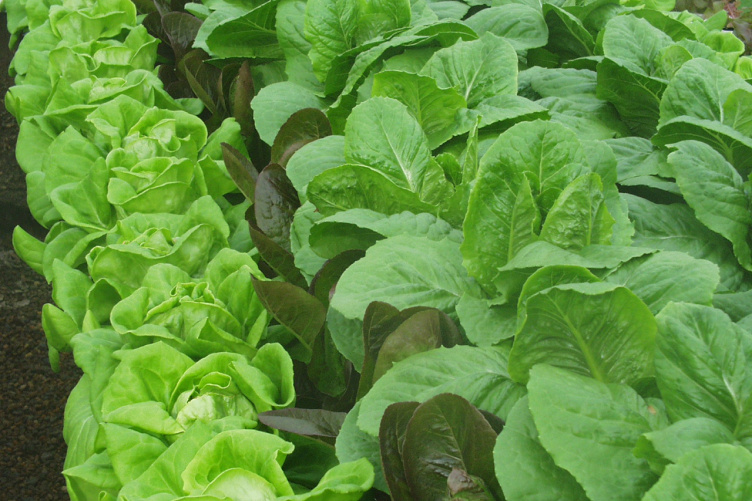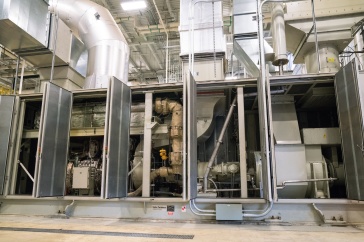
It’s an age-old challenge: How do you get children to eat more vegetables? Doris Demers '16, the child nutrition director for the Oyster River Cooperative School District (ORCSD), seems to have found an answer — feed them fresh, local produce.
“I’ve always felt strongly about buying local because everyone knows fresh is the best, and the longer a vegetable is off the plant, the more nutrients it loses,” Demers says. She notes that the number of students in her school district who eat school meals has increased dramatically since she started incorporating fresh, local meat, poultry, fish, vegetables and fruit into the district’s lunch menu.
But where to find delicious, freshly picked vegetables year round in New Hampshire?
Thanks to a partnership with the UNH Thompson School of Applied Science, Demers — who is a graduate of the school’s nutrition program — has an answer for that, too.
Beginning in September, under the leadership of horticulture facility manager Jonathan Ebba '23G, the Thompson School began supplying ORCSD with hydroponically grown greenhouse vegetables.
“I am very excited about this collaboration," Ebba says. "Hydroponics is the future of fresh, local produce in New England. As our students gain real-life experience operating a hydroponics enterprise, they know that their work will help to nourish children in our community."
The Thompson School added hydroponic growing to its horticultural technology program in 2016. The decision to train students to grow vegetables hydroponically, Ebba says, was the result of changes in New Hampshire’s greenhouse industry.
“The local food movement has opened up great opportunities in hydroponics, and our program is staying on the leading edge,” he says.
ORCSD, which serves 2,100 students in Durham, Lee and Madbury, is already seeing the fruits of the Thompson School’s labor, receiving 90 heads of lettuce and more than 40 pounds of other vegetables.
In the coming months, as greenhouse production increases, the Thompson School expects to provide the school district with 35 pounds of tomatoes, 85 cucumbers, 65 green peppers and 120 heads of romaine and buttercrunch lettuce per week. The school will also include more unique items based on availability, including baby bok choy, kale and microgreens.
ORCSD pays fair market value for the vegetables, providing much-needed revenue for the UNH greenhouses, which are funded solely by the sales of its plants.
But Ebba doesn’t see the partnership as being only about the sale of vegetables.
“I have already been scheduling field trip tours here for ORCSD classes to further the connection between our students and theirs,” he says. “Ideally, this collaboration will give Thompson School students opportunities to share information about our food production model, and ORCSD students will be able to learn about these systems and the underlying science in greater depth.”
"I think it’s really important that kids know what goes into growing their food, and the fact that our hydroponics production is so local to them is great," adds Thompson School student Rose Marston '18. "Hydroponics is such a new concept for a lot of people, and it's definitely worth educating people about."
-
Written By:
Sarah Schaier | College of Life Sciences and Agriculture



















































